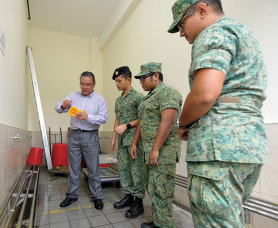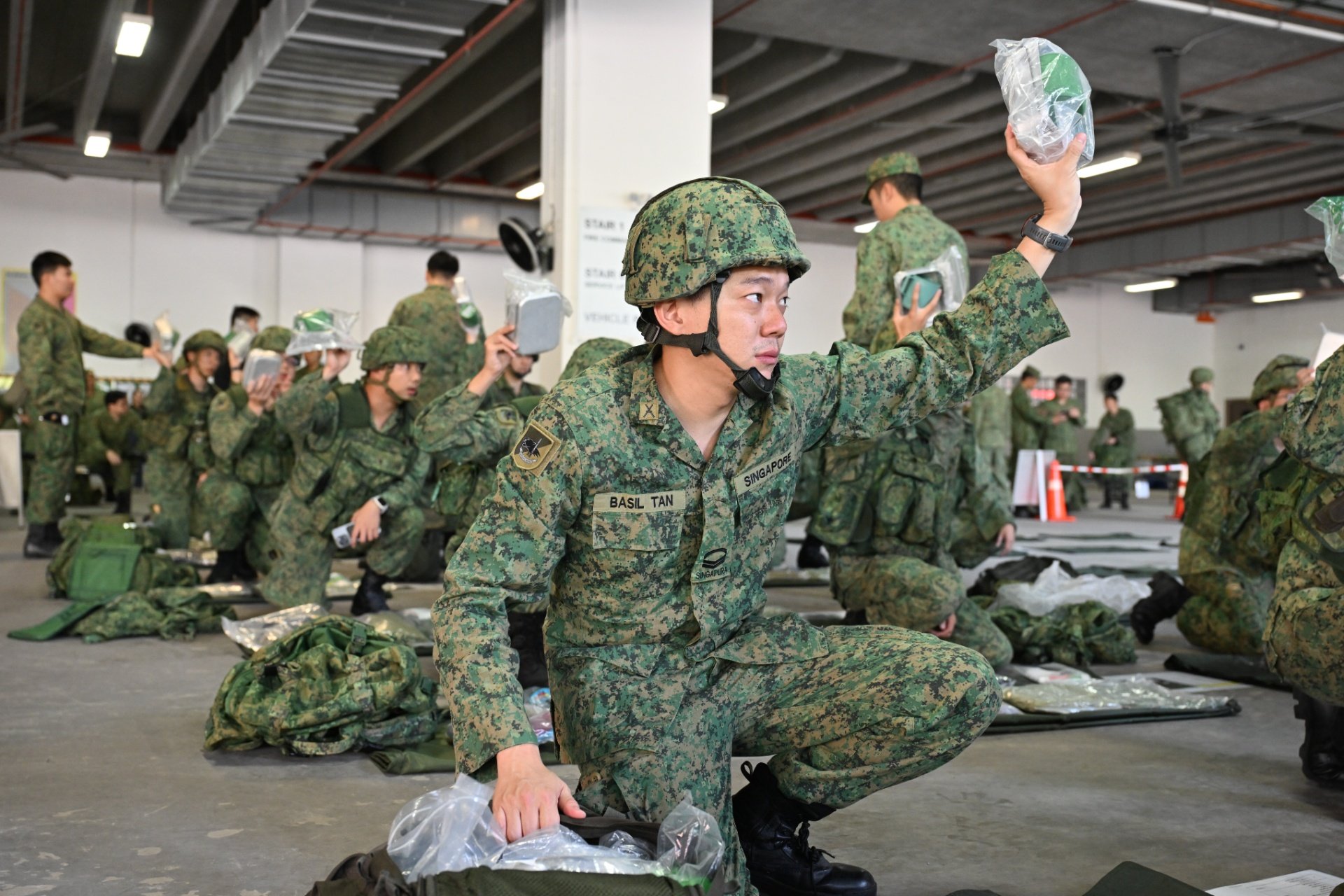OPS & TRAINING
SILENT WAR
19 May 2014
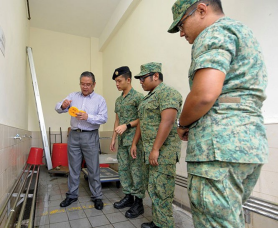
How the Singapore Armed Forces (SAF) has been waging battle against dengue with a combination of constant vigilance, people management and just plain old common sense.
It is a thankless job - weekly patrols looking out for stagnant pools of water and potential sites where mosquitoes could breed. Like many essential tasks, they are mundane and appear pointless until something bad happens.
That was the case for Mr Lawrence Wong, Camp Commandant at Mandai Hill Camp. He recalled having a friend succumb to dengue fever about two decades ago. "It was heart-wrenching to see someone so young just go like that.
"That's where I got the conviction to stop dengue; it's preventable if we adopt the right methods and attitude."
He oversees the sprawling area of Mandai Hill Camp - part of his job is to maintain the facilities in the camp - which is home to several Army units. He knows the camp like the back of his hand, rattling off about certain areas in the camp while pointing out the general direction with his hand.
Speaking of his anti-dengue efforts, the affable man said: "I think it's a responsibility to the parents who send their sons to us for National Service; we have to keep them safe."
Creating a system
The SAF's dengue control plan is simple: Eradicate breeding sites, increase awareness through education and upping engagement efforts. These efforts are led by the SAF Medical Corps, which provide anti-dengue guidelines based on the latest research.
On the ground, it means that teams - such as the one under Mr Wong - are asked to inspect their premises every two weeks. At Mandai Hill Camp, the team of 15 Full-time National Servicemen (NSFs) are given specific areas in the camp to look after.
"I also get them to follow the contractors when they come each month to oil the drains and check for breeding sites," said Mr Wong.
"That way, the NSFs can learn from the experienced pest control staff. They will (then) do better on their own weekly patrols with that knowledge."
It's not a matter of blindly following guidelines, he added. "During wet seasons when there is more rain, we intensify the patrols."
Every few weeks, the NSFs are rotated to check other areas in the camp. "This makes sure that there is consistency and they also check each other's work," explained Mr Wong.
Coordinated effort
Each SAF unit appoints Environment Control Officers (ECOs). These ECOs form a larger grouping spread across the Services. Their mission: coordinate efforts and build awareness.
These groupings' reports go up to the SAF's leadership to make sure that commanders across the board support the anti-dengue efforts.
At the helm of one such ECO cluster is Major (MAJ) Eddie Cheah, who is in charge of anti-dengue efforts for the Air Force s Participation Command (PC). He oversees the anti-dengue efforts of PC units in three camps - Sembawang Air Base (SBAB), Chong Pang Camp and Chua Chu Kang Camp.
There are others like him in each of the units who are appointed ECOs. As the overall ECO for PC, part of MAJ Cheah's work is to make sure that all ECOs keep their knowledge up to date.
"All newly appointed ECOs have to go through the National Environment Agency's course tailored for the SAF," explained MAJ Cheah. The week-long course teaches ways to control pests and knowledge of the Aedes mosquito.
Armed with that knowledge, the ECOs will go on to brief their own units to raise awareness of the dengue scourge. They might also be called upon to inspect other camps or unit compounds for signs of mosquito breeding.
Professional help
Every SAF camp has its own appointed maintenance agents and commercial companies that will carry out work such as applying granular insecticide in drainage gulleys and spraying an oil compound into drains.
"The contractors help us by providing the know-how," said Mr Wong.
In large camps such as SBAB, to save soldiers' time and allow them to focus on their operational roles, contractors also provide additional manpower to comb the premises for breeding sites, explained ME3-2 Ho Kok Kuan, an Air Force Engineer (AFE) based in SBAB.
Shared responsibility
One unit ECO, Military Expert (ME) 3-2 Mark Tan, said: "Preventing dengue is everyone's responsibility because it's our own living and working areas." The AFE also works in SBAB.
Their efforts are showing. Although Singapore has faced an unprecedented dengue epidemic since January 2013 (with more than 24,000 dengue cases and eight fatalities), there have been no discoveries of mosquito breeding sites in PC units since January last year.
The SAF also has plans to deal with known dengue cases. Once there is a single dengue case in an SAF Camp, Headquarters Medical Corps (HQMC) will inspect the camp premises within 14 days.
If a breeding site is found, Service Audit Teams (from the respective SAF Service) will re-inspect the camps to make sure that rectification work is done.
In the event that an SAF Camp falls within a dengue cluster, the camp will be fogged for three consecutive days. A team from HQMC will conduct a thorough inspection and affected personnel will be isolated.
Dengue 101
Only the female Aedes mosquito bites because it needs protein (found in blood) to develop its eggs.
Most bites are received at dawn and dusk.
An Aedes mosquito lives for about two weeks. It can lay eggs thrice, releasing about 100 eggs each time.
In dry conditions, the eggs can lie dormant for up to nine months. These dormant eggs can still hatch under the right conditions.
Dengue fever symptoms may include sudden high fever, severe headaches, nausea, and severe joint and muscle pain.
"At the end of the day, preventing dengue is a shared responsibility. We work with contractors to eradicate the problem early so that everyone is safe."
- ME3-2 Ho
ALSO READ IN OPS & TRAINING
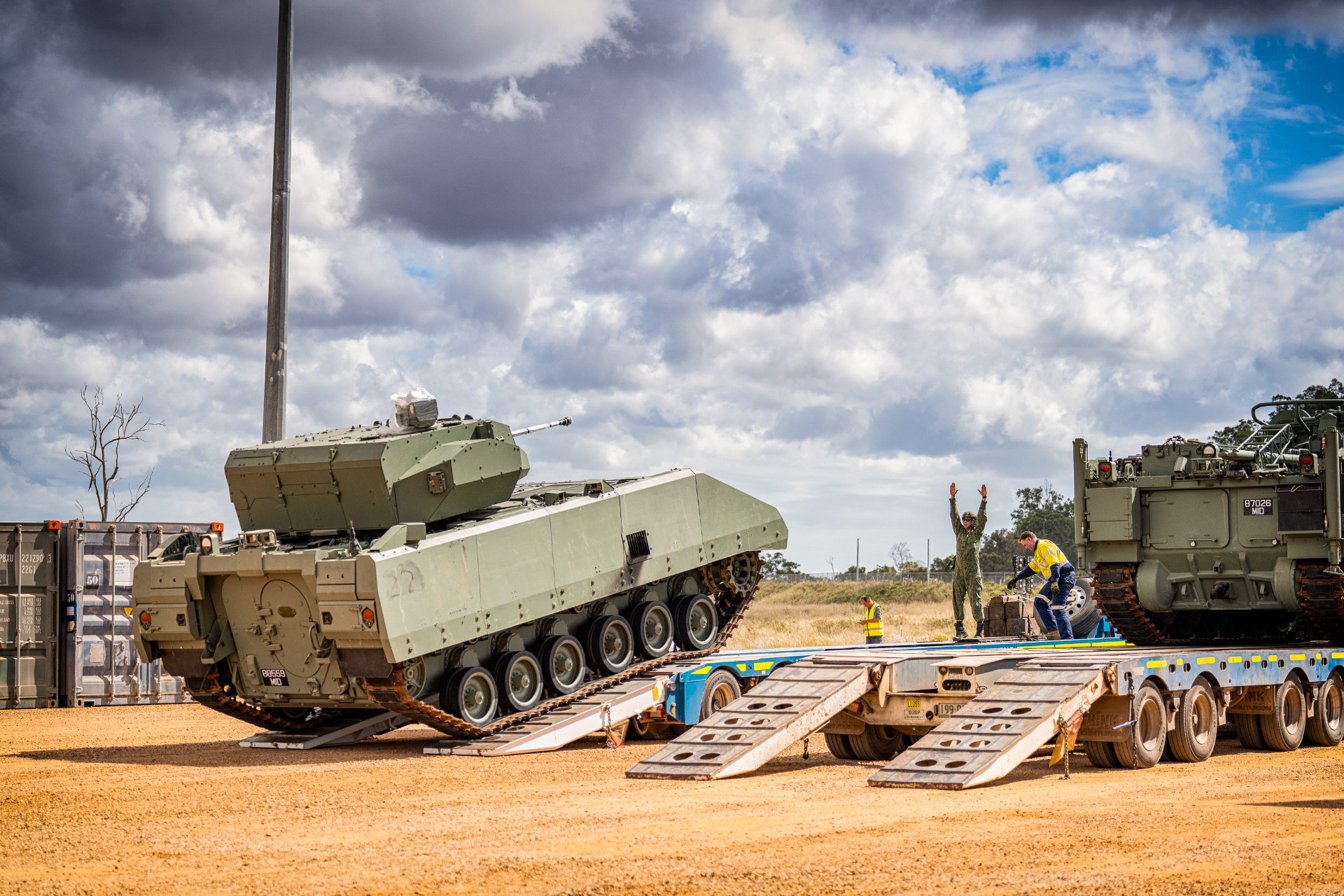
First in, last out at Ex Wallaby 2025
06 Nov 2025
Meet the teams who toil behind the scenes to enable the smooth conduct of the SAF’s biggest unilateral overseas exercise.
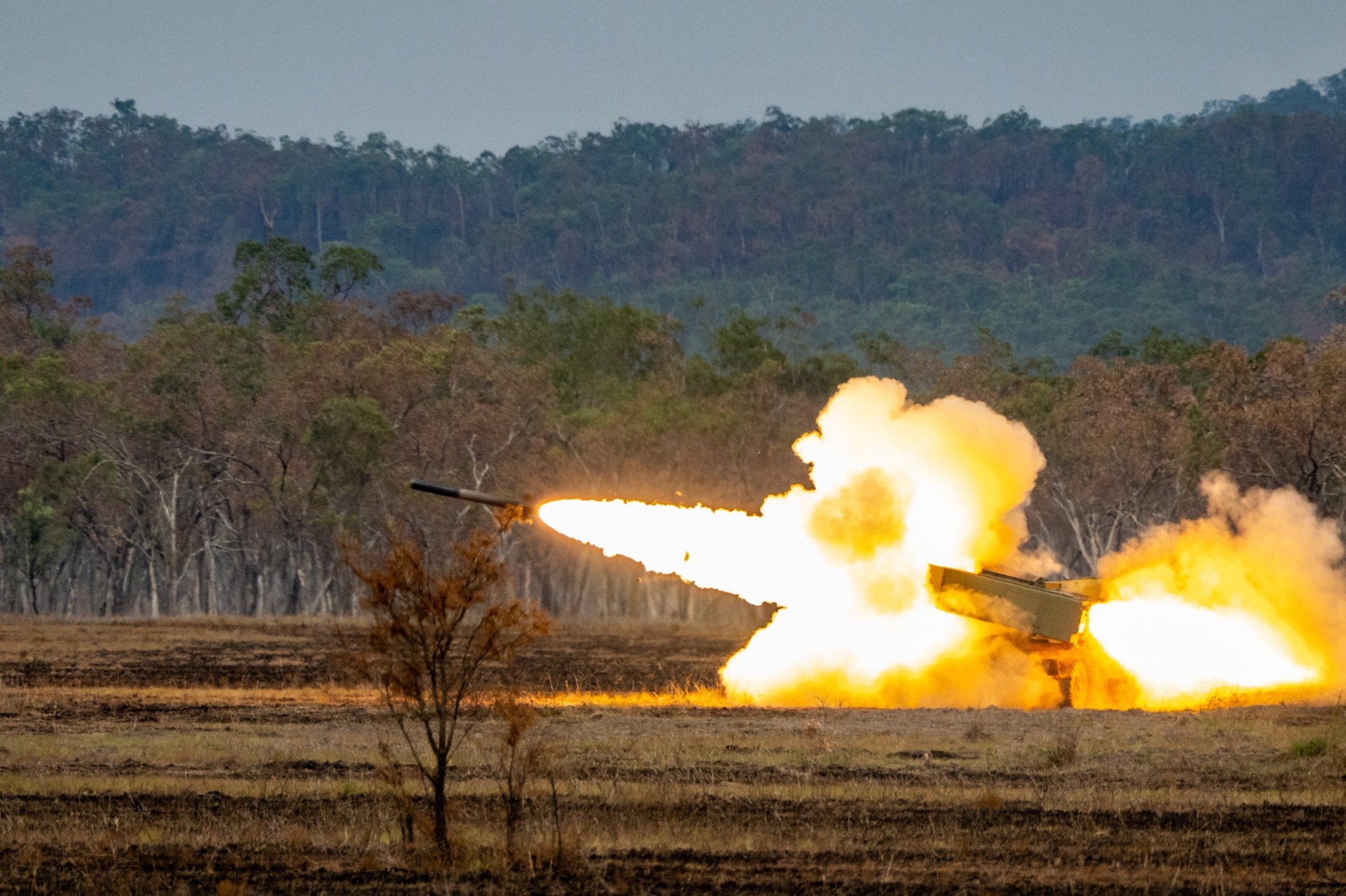
Exercise Wallaby 2025: To see better, shoot faster
31 Oct 2025
The SAF focuses on complex strike missions and multi-domain integration in Exercise Wallaby 2025, the 35th edition of its largest unilateral overseas exercise.
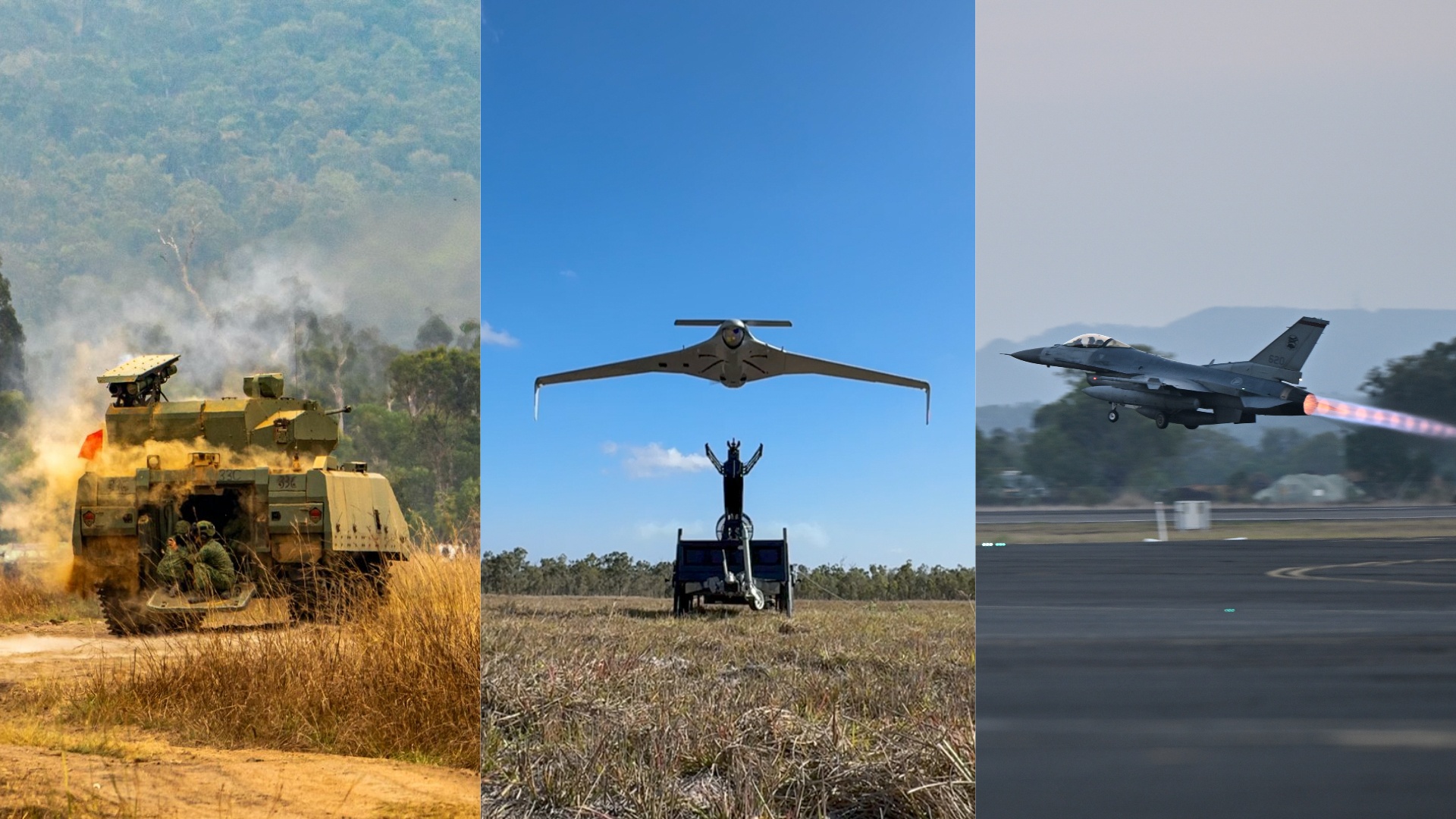
Ex Wallaby 25 – Greater Integration and Complexity
25 Oct 2025
The 35th edition of the SAF’s largest unilateral overseas exercise is an opportunity for expanded scale and deeper integration towards an effective, networked fighting force.

